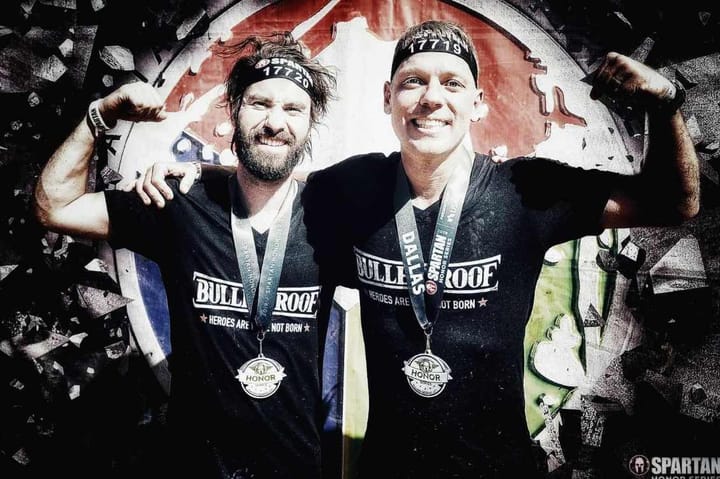My 100 rules for life
Hi, I'm Daniel Bennett, the guy behind Legend Media. This is my personal hero's code, inner compass & life philosophy that guides me on the Path. It's a work in progress, just like me. Maybe it will help guide you on yours.

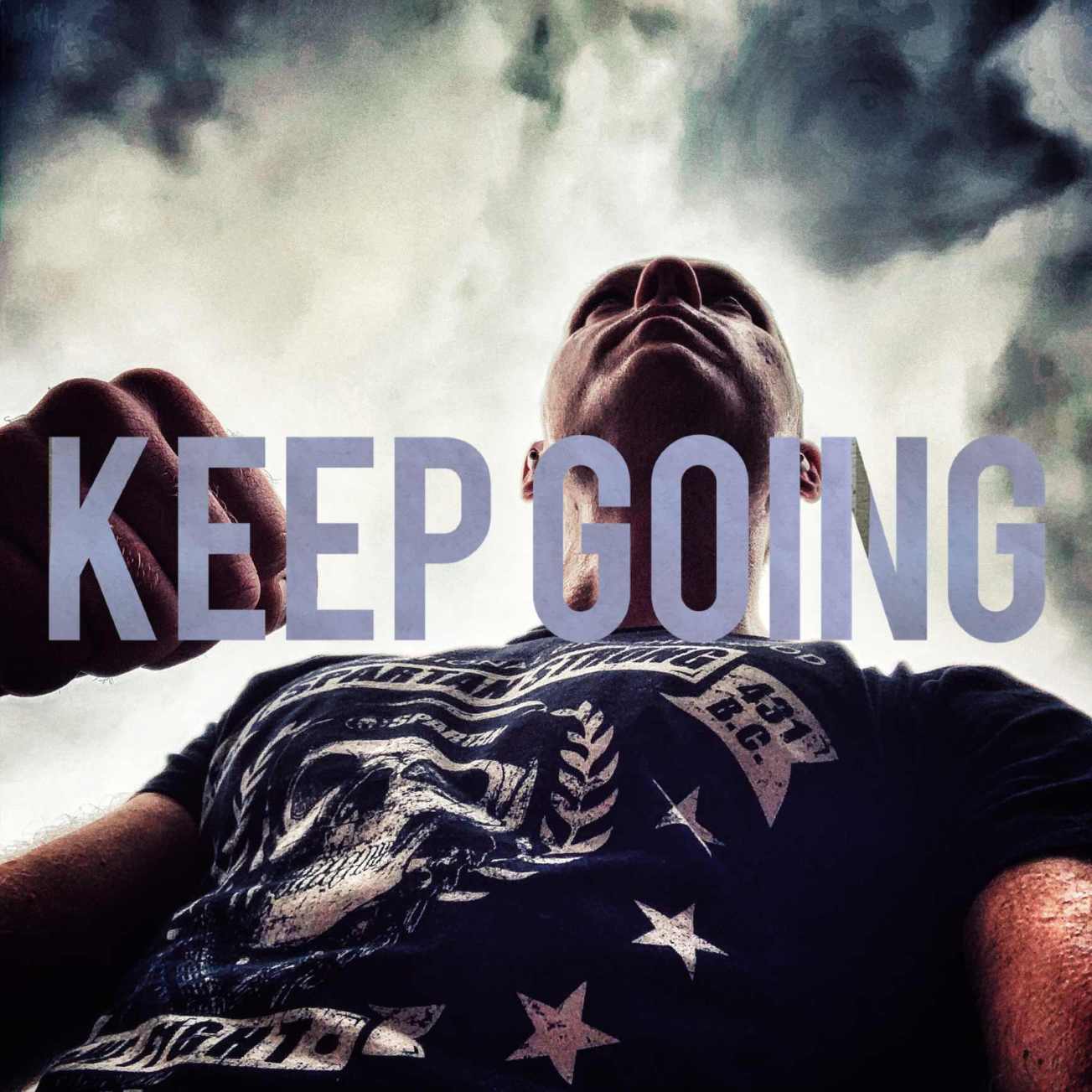
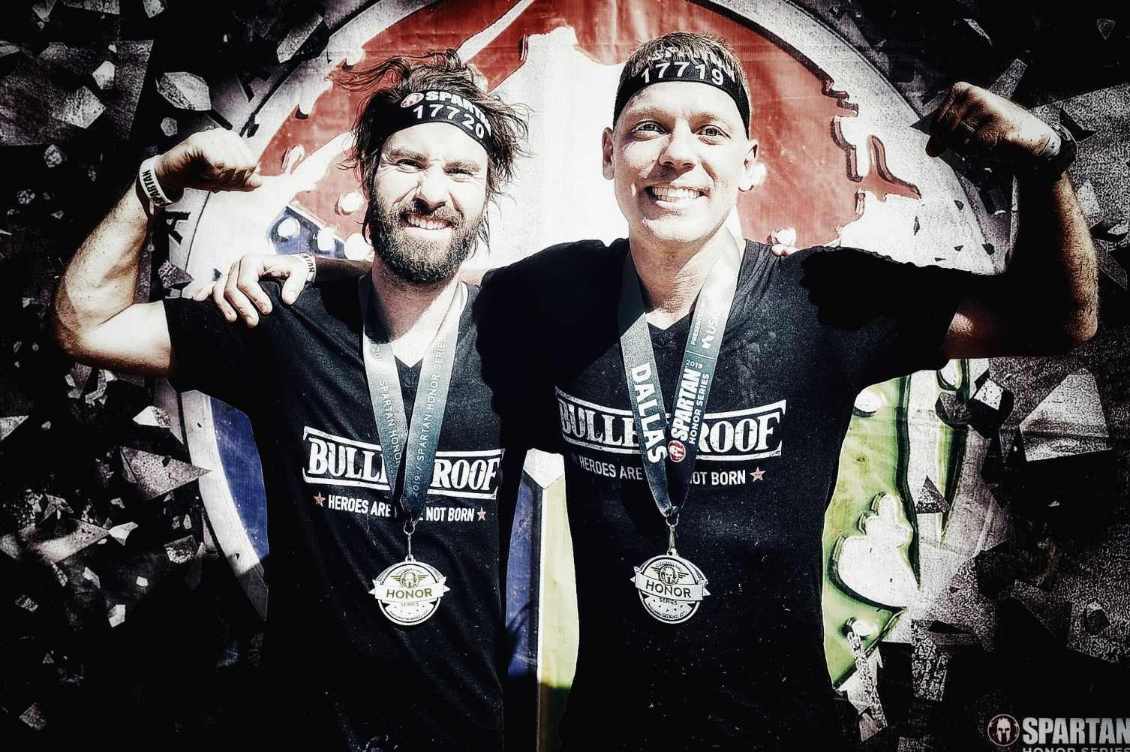
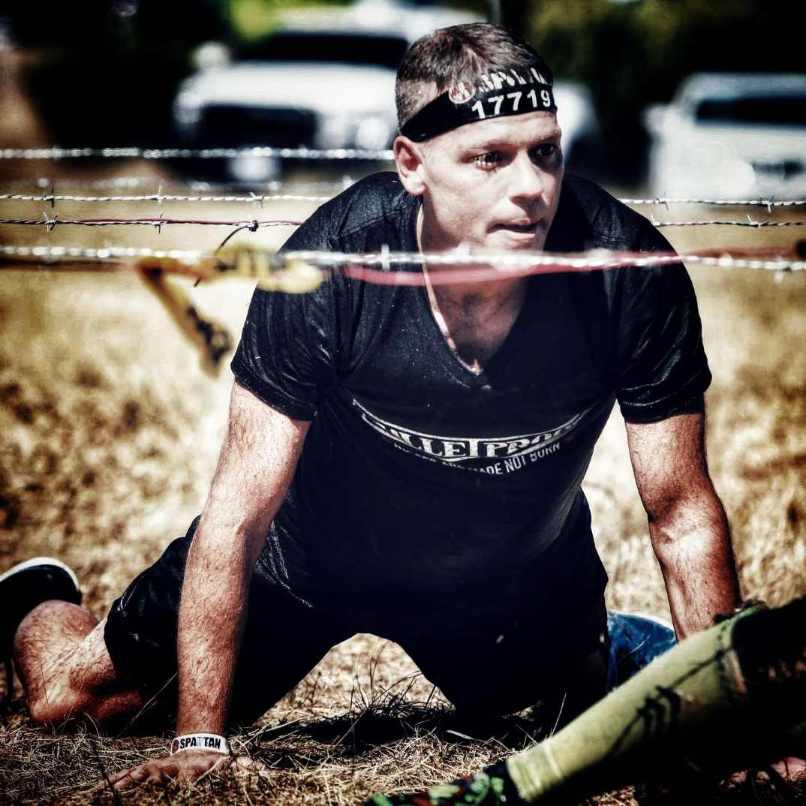



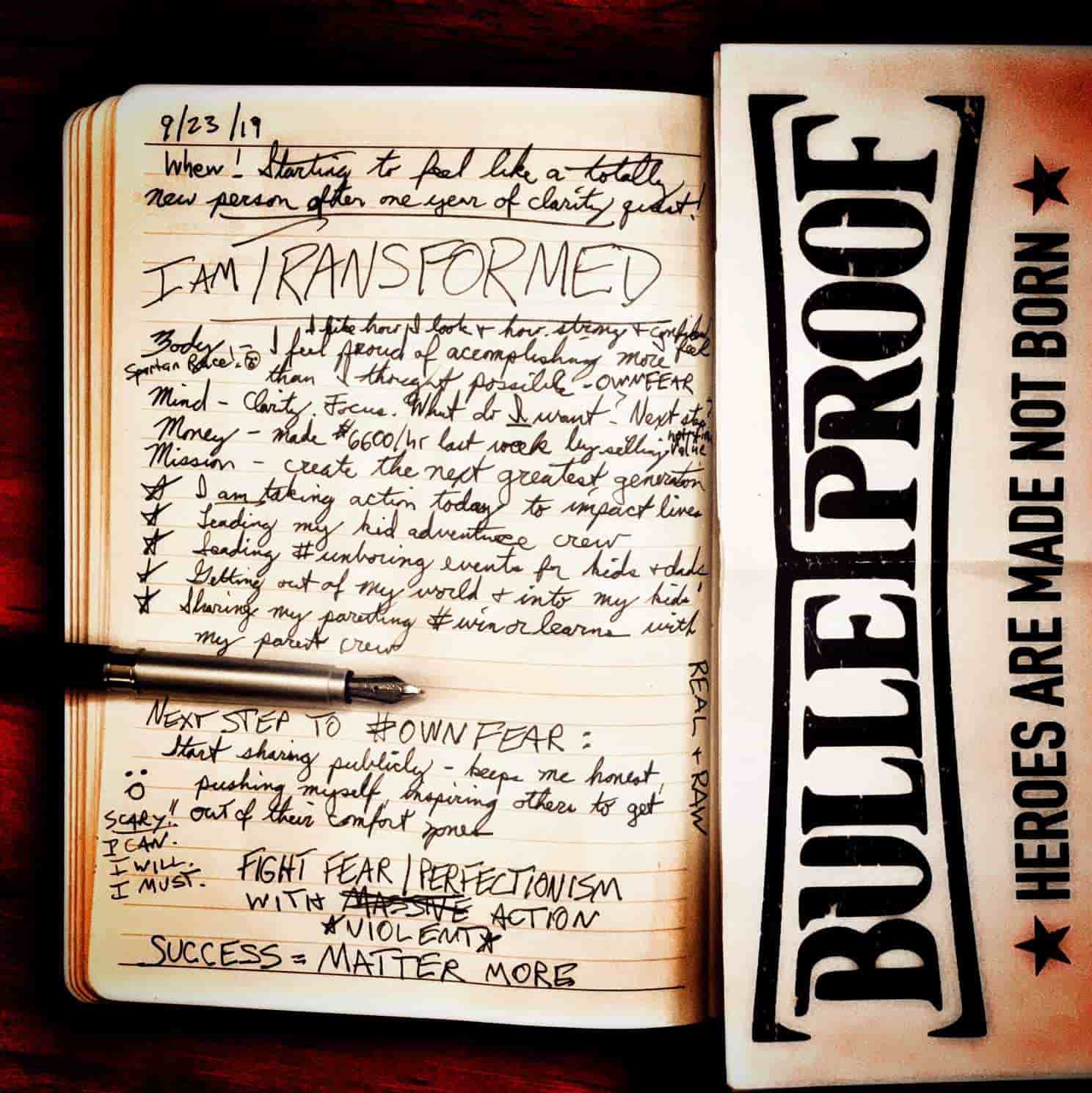
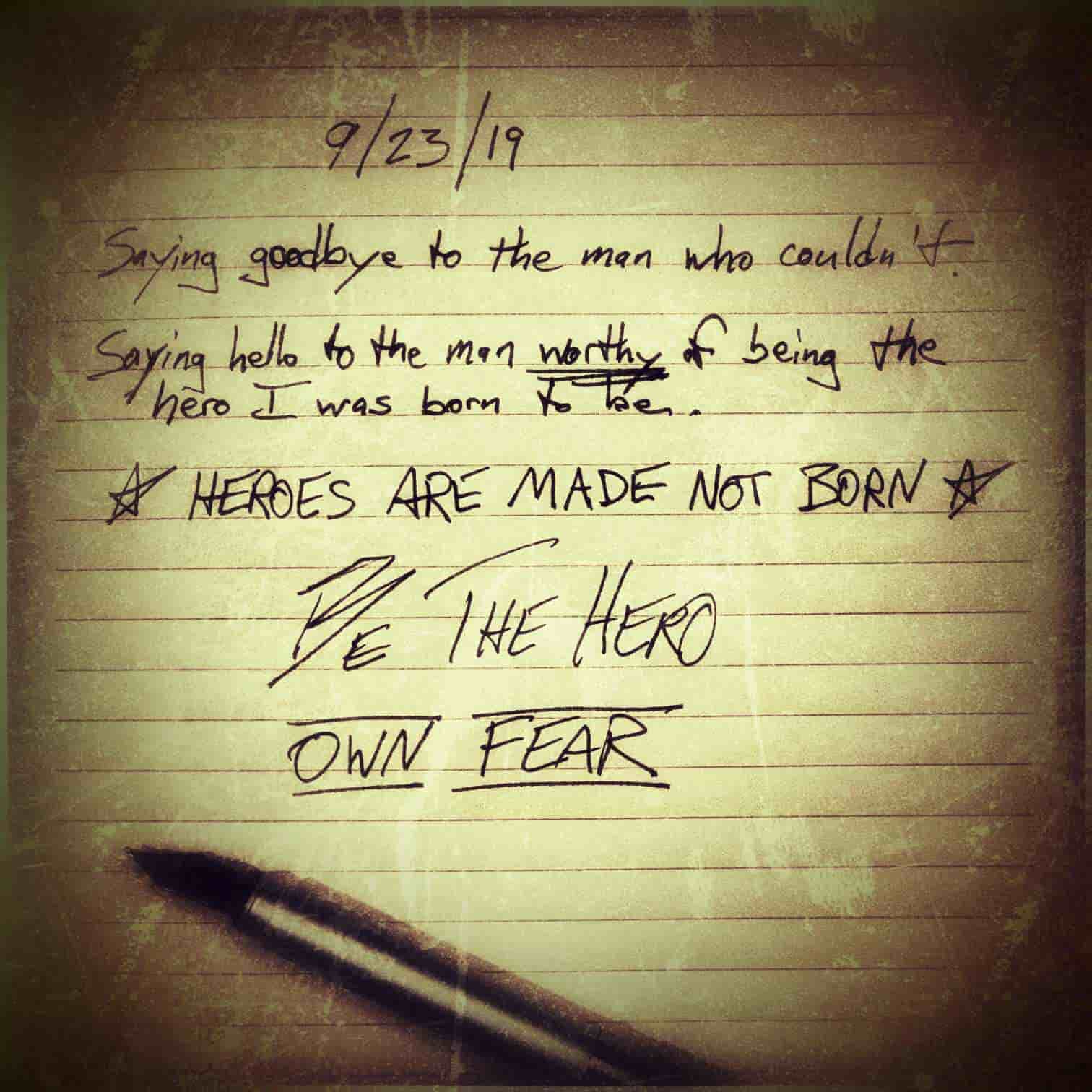

On the path
Hi, I'm Daniel Bennett, the guy behind Legend Media.
This is my personal Hero's Code, inner compass & life philosophy that guides me on the Path. It's a work in progress, just like me. Maybe it will help guide you on yours. Read my journal here.
– Daniel
Got your own rules for life? Need some? Let's talk!
- IG: @thedanielbennett
- TW: @thedanielbennet
- EM: hi@legendmedia.co
★ BE LEGENDARY ★
★★★
BE NOT DO.
Success is not in having or achieving, but in being & becoming. I am worthy just because I am. Be the Hero.
The Latest
- Suffer well
- See it. Believe it. Achieve it.
- Massive Messy Action (MMA)
- One Big Thing (OBT) - What's the one thing that makes everything else irrelevant? Do that.
- ABZ framework - Z is the destination, A is today, B is the very next micro step. The rest is a distraction.
- Microfocus - "The successful warrior is the average man with laser-like focus" - Bruce Lee
- Be water - the brittle break
- Effective beats efficient
- Own fear and overcome
- Done beats perfect (or cheap, or ...)
- Prioritize and execute - Jocko Willink
- Tiny dragons - Fear shrinks in the light - write fears on paper to free your mind for solutions - do https://tim.blog/2017/05/15/fear-setting/ at least quarterly
- To new parents - there is no perfect, so relax the pressure on yourself and enjoy the journey today! Take the advice that works for you, leave the rest.
- Tiny steps add up
- Be 1% better than yesterday
- Stronger every day
- The power of yet - Not "I can't do it" but "I can't do it YET". The smallest word that changes everything.
😠 Stress
Choosing battles wisely.
1. “Focus on what you control.” — It’s unhelpful to dwell on things outside of your control.
2. “This too shall pass.” — “There are more things likely to frighten us than there are to crush us; we suffer more often in imagination than in reality.” –Seneca
3. “Not wanting something is as good as having it.” — If you don’t want something, you’re just as satisfied as someone who has it. Naval Ravikant says that “…desire is a contract that you make with yourself to be unhappy until you get what you want.”
More:
📅 Productivity
Getting stuff done.
4. “Perfect is a myth. Make a choice.” — Start and iterate.
5. “Use models.” — Don’t recreate the wheel. Learn from others and save time.
6. “Start super simple.” — Make the simplest version first. Don’t complicate things. Build an MVP. Or a concierge MVP.
7. “Read and listen to whatever you’re most interested in.” — We get more out of what interests us. Find something that you enjoy reading instead of struggling through books. This idea came from Shane Parrish.
8. “The best returns in life come from compound interest.” — This applies to relationships, habits and business. Thanks again Naval.
9. “Successful people say no to almost everything.” — Focus.
10. “Get it working by any means.” — Inspired by test-driven development. Improve the solution after the test passes. This applies to more than code.
11. “Hire/build when it hurts.” — Handle your most painful problems first. Avoid premature optimization.
12. “Set goals. And work backwards.” — Use big goals and small goals. Milestones can expose whether you undershot or overshot.
👁 Influences
Curating influences.
13. “Don’t read/watch the news. Skewed incentives.” — The news is a war on our attention. We are frightened into coming back to find out what else to be afraid of. This leads to availability bias and pessimism. Some of us are more afraid to fly than drive. Counteract the news with positive propaganda.
14. “You are who you're with (you’re the average of the 5 people you're around most).” — This goes beyond people. What books, podcasts, videos or music do you consume?
15. “Stay away from negative people.” — Vibes are contagious.
🧐 Decisions
Making good decisions.
16. “Listen to your gut.” — Don’t ignore your instincts.
17. “Hard choices, easy life. Easy choices, hard life.” — From Jerzy Gregorek. Hard decisions are often the most important. Ben Horowitz tells us to run towards the fear.
18. “Consensus is regression to the mean.” — Trying to appease everyone takes you nowhere.
19. “Think probabilistically.” — Think grey. Not black and white. This comes from Annie Duke and her book, Thinking in Bets. Assign percentages to your beliefs instead of speaking in absolutes.
20. “Short engagements. Test situations.” — Test partnerships and commitments with trial runs. Build a small project together before going all in.
21. “Red team. Blue team.” — Approach decisions as a critic and a supporter. Answers often reveal themselves.
22. “IDK = No” — If you’re uncertain, the answer should probably be no. This comes from Derek Sivers who wrote No “yes.” Either “HELL YEAH!” or “no.”
23. “Know your alternatives.” — You always have a choice. Remain aware of your alternatives. Has your current path become too expensive? Has a better option emerged?
24. “Don’t risk ruin. Not even a small chance.” — This is what killed Long-Term Capital Management. When Genius Failed tells the story.
🗣️ Communication
Being understood.
25. “Use simple language. Few syllables. Short sentences. Short paragraphs.” — Simplicity is hard to achieve. Work hard so your audience doesn’t have to.
26. “Our brains are built to enjoy stories.” — Stories help information stick.
🙂 People
Understanding others.
27. “We’re all driven by the fundamental desire to be appreciated”. — Don’t underestimate the role of emotion.
28. “Don’t argue. Bet.” — Test belief through sacrifice not words.
29. “Appeal to interest, not reason.” — We don’t care about what makes sense. We care about what makes sense for us.
30. “Misery loves company.” — So does happiness.
31. “Happy people rarely become haters.” — Unconstructive critics are often dealing with their own demons.
32. “Difficulty reveals character.” — Our masks fall during struggle. Build friendships through shared struggle. Jiu-Jitsu, hackathons, work, travel.
33. “We stereotype all of the time. Rightly or wrongly. Don’t ignore it. Signals matter.” — We take mental shortcuts to conserve energy. Use pattern interrupts when you’re being negatively stereotyped. Life is short. Not fair.
34. “The more you understand incentives, the less you take things personally.” — Incentives drive behavior. Sometimes it’s not personal. Change incentives instead of trying to change people.
35. “Hurt people hurt people.” — Don’t react. Remember this.
36. “Don’t try to change someone’s worldview. Take those who see it and take them further.” — It’s hard to change someone’s worldview. It’s easier to help someone who already sees it. What’s the best use of your time?
👯♂️ Relationships
Building connections.
37. “Trust saves time.” — Invest in trust on the frontend and reap rewards on the backend. High trust relationships move faster and get more done.
38. “Focus on compounding relationships.” — Focus on building relationships with long-term potential.
39. “Don’t force relationships.” — What’s forced eventually falls apart. Forcing only delays the inevitable.
🤝 Negotiation
Getting what you want.
40. “Whoever cares less wins negotiations.” — Who can afford to walk away? Who needs it the least? This person tends to get the best deal.
41. “Negotiation and business are about alternatives.” — Good decisions are relative. It’s about choosing the best option among alternatives. Know your BATNA.
🧘🏿♀️ Wisdom
Knowing yourself is my definition of success.
42. “It’s easier to resist in the beginning than the end.” — Mistakes become harder to correct the longer they linger. Sunk costs play tricks on us. Suck it up and rip the bandaid off now. Toxic relationships, bad hires and tough conversations. It’s immediate pain versus chronic pain.
43. “To know all is to forgive all.” — You would be more understanding if you knew everything about a person. Look closer when something doesn’t make sense.
🌱 Growth
Constantly improving.
44. “Focus on doing the thing, not the outcome.” — Commit to the process, not the outcome. You control whether you do it, not how it turns out.
45. “Continuous improvement requires feedback.” — Feedback is a gift. No feedback. No improvement.
46. “How to build confidence? Do things just outside your comfort zone. And repeat as it expands.” — This fuses confidence with progressive overload. Confidence-building can become a habit. This comes from Tim Ferriss.
47. “If you decide to only do what works. You’re leaving a lot of opportunity on the table.” — Experiment.
🧗🏿♀️ Courage
Doing despite fear. Own fear and overcome.
48. “Courage is a muscle that you need to train.” — Picture courage as a muscle that atrophies if it goes unused. Courage can also be strengthened through progressive overload. This came from a conversation with Harry Dry.
49. “New things scare us. Do it anyway.” — By acknowledging fear, we are better able to move past it.
50. “The biggest upside comes from being outside your comfort zone.” — In the words of DJ Khaled, major 🔑 alert.
51. “Fear is a good thing. It means you’re close to making a breakthrough.” — Fear can indicate potential growth opportunities.
👩🏽🎨 Design
Making things.
52. “Trying to appeal to all leads to average.” — We make too many concessions by trying to appeal to everyone. Seth Godin writes about the importance of being important to a small group. This rule mirrors “Consensus is regression to the mean.” But as David Senra says, repetition is persuasive.
53. “Brevity is the soul of wit.” — Shorter is better.
54. “KISS = keep it super simple.” — Stay away from unnecessary complexity. “Everything should be made as simple as possible, but not simpler.” – Einstein
55. “Make it work. THEN make it pretty.” — It’s easier to find an elegant solution once you have something working. This applies to any craft.
56. “Don’t make them think.” — Make it obvious.
💼 Business
Delivering value.
57. “Start with problems. Not solutions.” — Start by studying the problem instead of offering solutions. Study the lock before you make a key.
58. “Frustration is an opportunity.” — Keep an idea journal. Jot down your problems. Some are business opportunities.
59. “The most important part of business is the market. It’s easier to ride a wave than it is to make one.” — A good team won’t survive a bad market. A good product won’t survive a bad market. A bad team with a bad product can survive in a good market. Pick hungry markets. This comes from Marc Andreessen who wrote The Only Thing That Matters.
60. “Business opportunities can lead to others.” — Build something even if you don’t have a “good” idea yet. We find new problems by solving problems.
61. “A company can be your vehicle for continuous learning.” — Do something. Don’t just study.
62. “Awareness → Interest → Decision → Action” — Marketing is about awareness and conversion. Be visible. Pieter Levels, Andrey Azimov and Danielle Johnson are great examples of this.
63. “50% Rule. 1/2 Growth. 1/2 Product.” — Spend half of your time talking to customers and half building. Don’t endlessly build without feedback.
64. “Does the business have network effects? Does it require funding?” — Network effects determine the number and size of the businesses a market. These are winner take most games. Nextdoor, LinkedIn, Facebook. Building these companies often involves raising money. Is this the kind of business that you want to run? Consider founder-market fit.
65. “The more you ship. The more you increase your chance of success. Throw enough against the wall and something’s bound to stick.” —Andrew Pierno wrote about this in The Edison Approach to Profitability.
66. “Consider buying a business. A statistically profitable approach.” — Validating business ideas involves a lot of false starts. Buying a business with product-market fit can be a statistically profitable approach. Price affects risk. Nassim Nicholas Taleb discussed the idea of statistical profitability in Fooled by Randomness.
67. “Copy businesses that are working. These are formulas. Steal and improve them.” — Find a proven market. Study the problem. Be different. If you can't be different, be better, or both.
68. “Choose the fastest option. Refactor later.” — Prioritize speed early on. If you’re unable to validate an idea, there may be no long-term to worry about.
69. “Theory of 3 (good money) and 7 (wealth).” — Pick something that you can stick with for the long run. The hosts of The TMBA Podcast have a theory that it takes three years of working on something to make good money and seven years to generate wealth.
70. “Build what YOU need or want.” — Sahil Lavingia says that if you build for yourself then you at least have one customer. It doesn’t guarantee that others will want your solution but it’s a good start.
💁🏾♂️ Selling
Persuading.
71. “Ask for feedback to sell.” — If you want money, ask for advice. If you want advice, ask for money.
72. “Don’t try to sell what you wouldn’t buy.” — Confidence is palpable. Potential customers will know if you believe in what you’re selling.
73. “Deliver value and build trust before you try to sell.” — Trust saves time. Write great content. Offer a free trial.
74. “Have a rejection goal.” — Each ‘no’ moves you closer to your goal. Flip the psychology of selling. Carl Jacobi told us to “Invert. Always invert.”
75. “Start with why. They’ll be more likely to comply.” — Explain why something is important before making a request.
🙃 Enjoying Life
Living without regrets.
76. “If you don’t HAVE to keep reading or listening, don’t.” — Don’t trudge through books, podcasts or movies. Pick something else up. You don’t have to finish every book.
77. “The journey is the reward. Hedonistic adaptation.” — Lottery winners return to their baseline happiness levels. Learn to love the process. That’s where 99% of your time is spent.
78. “We get more out of what interests us.” — You learn more when you’re engaged. Charlie Munger says follow your natural drift.
79. “Memento Mori.” — Your time is limited. Live with urgency. Remember death.
🥇 Success
Winning.
80. “Don’t self-reject.” — Don’t tell yourself no before someone else can. This came from Sahil Lavingia.
81. “Knowledge is (potential) power. Action makes it so.” — Applied knowledge is power. It takes courage and energy to activate. Derek Sivers said that if information was the answer, then we’d all be billionaires with perfect abs.
82. “Play long-term games. Compound returns.” — Focus on the long-term. Most benefits come from later stages of compounding. Pick up habits that you can see yourself sticking with. Jeff Bezos says to focus on what doesn’t change.
83. “Play asymmetric games. Life is not baseball. 1 hit can pay for 1000 runs.” — Some activities have asymmetric upside. Reading, writing, coding, selling, leading, comfort challenges, publishing. Play games with asymmetric upside.
84. “Ask for what you want. You can’t get what you don’t ask for.” — You’ll get a yes or a know.
85. “Move with intent. You’re more likely to get what you want.” — Are you living proactively or reactively? Establish a north star to orient your decisions around. ‘If you don’t know what you want, you end up with a lot that you don’t.‘ –Chuck Palahnuik
86. “We thrive in niches. Specialize.” — Focus on what you’re good at and rely on others for the rest. Leverage the API instead of building from scratch.
87. “Wealth is made in extreme concentration.” — Wealth is maintained through diversification but made in extreme concentration. Focus.
88. “Price affects risk.” — If an experiment is cheap, just do it. The more the price goes up, the more you should reconsider.
89. “Follow up.” — This can yield dividends.
90. “Live below your means for freedom and options.” — Establish a margin of safety to take more risks. James Clear says that ‘Your success depends on the risks you take. Your survival depends on the risks you avoid.‘
91. “Don’t be desperate.” — Desperation often results in bad deals.
92. “Ship daily/weekly/monthly. Build your shipping muscle.” — Become comfortable exposing your art to an audience and embracing feedback.
93. “Screw imposter syndrome. Do it.” — We second-guess ourselves a lot. Do not wait for permission. It may never come. Acknowledge self-doubt and move past it.
⏳ Management
Being effective.
94. “Put your name on it. This makes you try harder. Accountability.” — You work harder when your name is on the line.
95. “Get the incentives right.” — It’s the most important thing in management. You get what you reward. Align incentives.
🕺🏾 Personal
Adjusting for your own quirks.
96. “Associate growth with doing. Not reading/watching/listening.” — Don’t overstudy and underexecute.
97. “Do high energy tasks early in the day.” — Do creative work when you have the most energy.
98. “Reading fiction = Increased empathy and creativity. Better verbal communication and writing. And less stress via escapism.” — I once avoided novels because I didn’t know what I would learn. I still don’t know. But I read fiction for other reasons.
99. “Use podcasts to stay motivated.” — Listening to other misfits helps me stay motivated.
100. “Habit levels. 3/10/30/100/300/1000/etc.” — The rule of 3 and 10. This came from an interview with Phil Libin in Tools of Titans. It states that everything changes at multiples of 3 and 10. When a company triples in size, everything breaks. I use multiples of 3 and 10 to celebrate milestones in habits and business. Gamify your life to stay engaged through the messy middle.
★★★





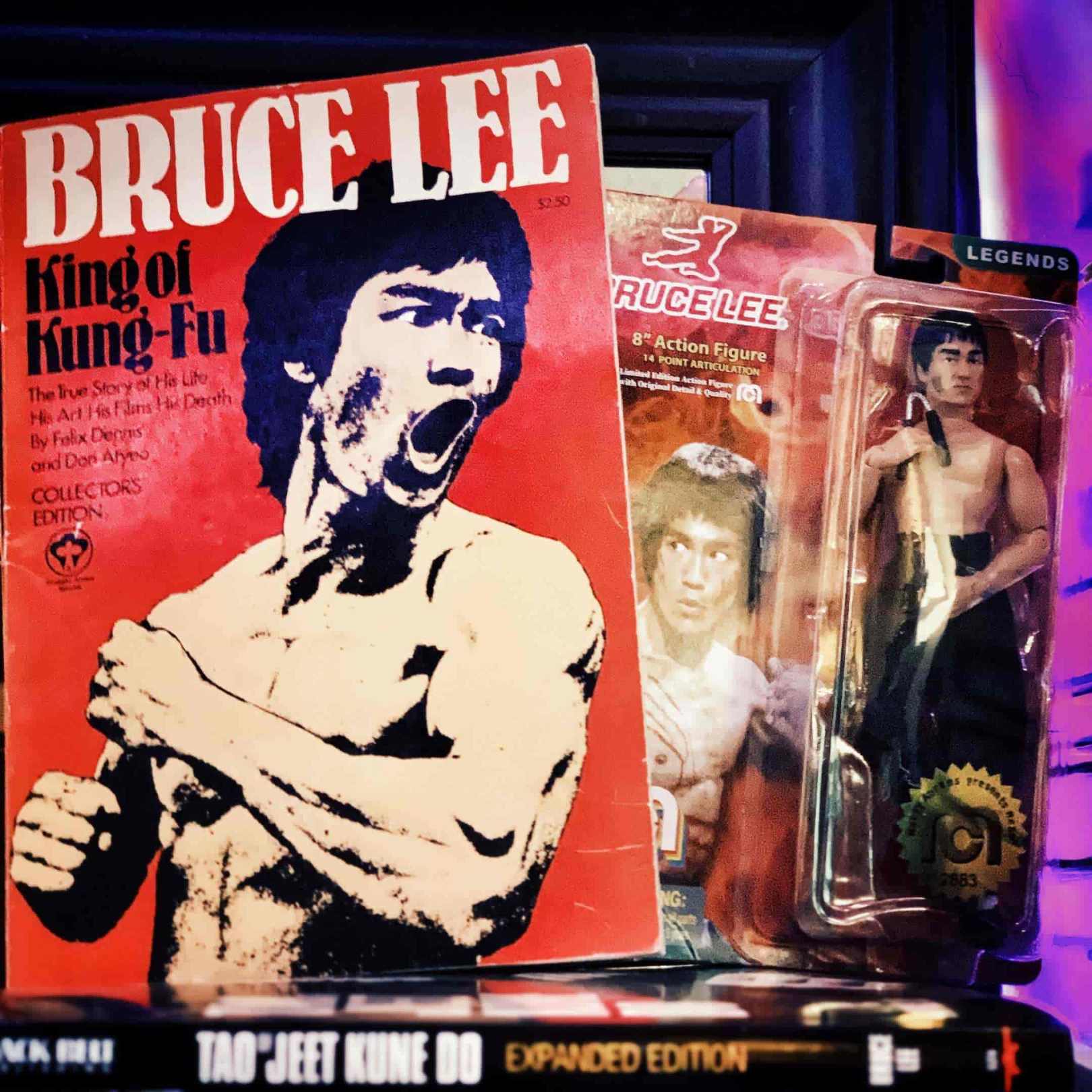
A peek into my Legend Lair
Thanks for reading. These rules emerged from years of refining. As Bruce Lee says, it's not about the daily increase it's about the daily decrease.
The goal is not to remember everything. I read the list with problems in mind. The path usually becomes clear by the time I finish.
🤔 What rules do you live by? Share some with me on Twitter.
Now go be legendary!


